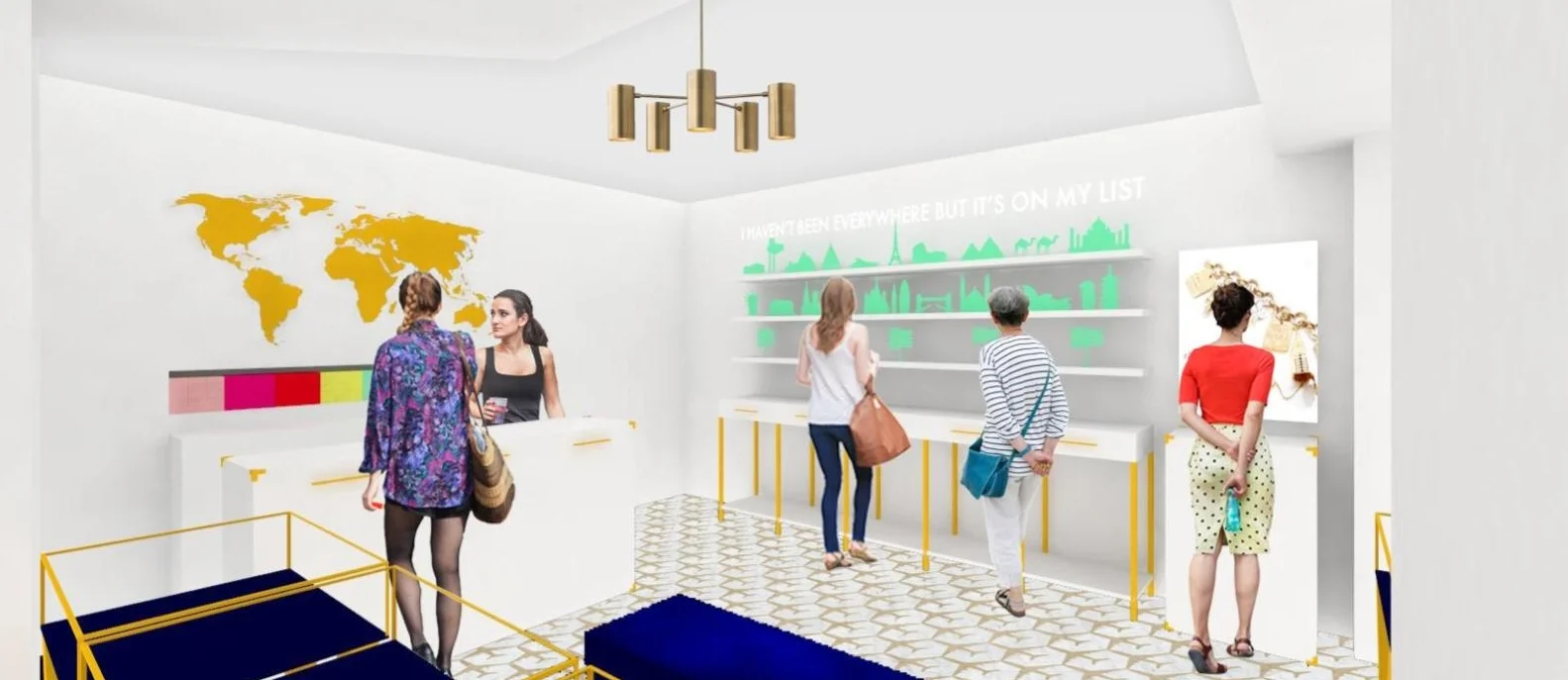Situation
Founded in 2012 , Jet Set Candy reinvents the travel souvenir with wearable keepsakes that are playful and chic. Scheduled to open Fall 2018, the retail store at Grand Central Terminal will be Jet Set Candy's first permanent brick-and-mortar presence and serves as a prototype for its future in-person retail experiences.
Working closely with the founder and Creator-in-Chief, the scope of work includes everything related to the physical design of the store— from the customer journey to visual merchandising— with the ultimate goal of developing Jet Set Candy's Store Design Guidelines for future stores around the globe.
customer journey
Given the sheer number of product, it was critical to design a clear path forward for the customer to avoid feeling overwhelmed. In the absence of a single CTA that gets a customer to final purchase (i.e. Create a Candy Bento in Sugarfina stores), then the next best thing is to simplify the process down to its most essential components. The pervasive trend for this in retail has been to adopt a 1-2-3 step process (take a look around and you'll start to see it everywhere), which also made sense for Jet Set Candy.
reward the explorer
The critical decision in designing the customer journey was to make the brand's existing tagline, "Collect Your Adventures" the first essential step. While there are several ways one can shop (destination, collection, product type), it made sense to lead with destination given that the core of the collection consists of location specific charms.
The customer is encouraged to lead with their destination in mind— places they have been or have even to go— the point being to first collect the places and stories that have meaning for them.
The charms themselves come in three types: luggage tags, passport stamps and classic/movable charms.
The second step addresses how customers are able to tell their stories through layering their charms on necklaces and/or bracelets.
The third and final step allows the customer to personalize their story by customizing their charms with complimentary in-store engraving.
Store layout
The next step was to translate the customer journey into spatial components— where and how does one collect their adventures, create their story and make their mark?
display cases
>An integral part of the design process was research through visits to jewelry stores across a range of price points, which included Alex and Ani, Pandora, Kendra Scott, Monica Vinader and David Yurman. The concept of "fine casual" in relation to the jewelry vertical was something that was top of mind during these visits.
One key take away was that jewelry displays could be thought of as modular systems, which defined our approach:
• Each module corresponds to a square insert that is interchangeable and can be designed separately.
• Each module can expand to two or three bays if needed.
• Each module has a top and bottom component (thee glass display and the support base or frame).
This helped to structure how we would move forward with the design process, starting with the fundamental modules and slowly layering on levels of detail.
the module
Module - Top
Module - Bottom
module studies
















